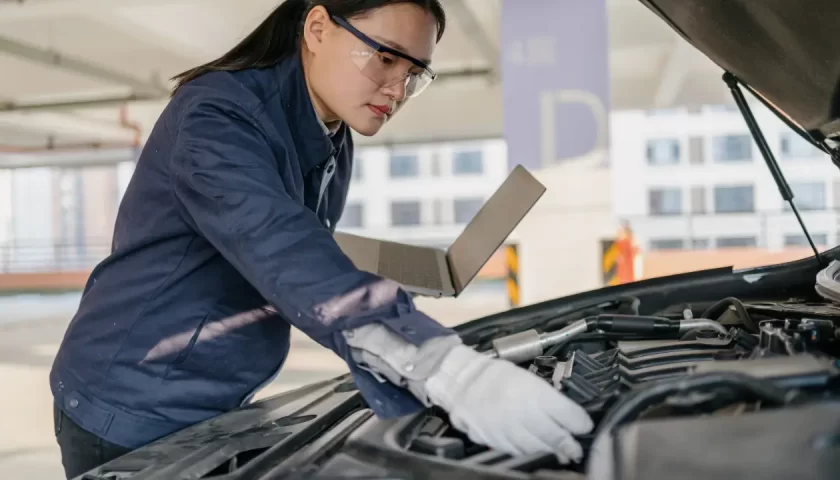Vehicle inspections are an invaluable way to spot potential issues before they lead to major breakdowns on the road. Unattended issues, like worn-out brake pads or malfunctioning lights, can quickly escalate into costly accidents that will require expensive repairs.
Inspectors ensure horns are present, functional and adjustable by drivers for safety, while an effective exhaust system reduces carbon emissions that lead to environmental degradation.
1. Safety
Many states enact laws mandating that vehicles be subject to inspections to verify safety and emissions standards are met, risking fines and penalties should drivers fail to do so. As it’s essential that everyone follows these laws, everyone should make every effort to abide by them.
Inspections ensure all essential systems are working as intended, which reduces the risk of accidents. For instance, technicians will inspect your brakes regularly to make sure they’re not worn down too much; otherwise this could result in your car skidding on the road or breaking late, potentially leading to an accident.
Identification of potential issues early can save money in expensive repairs later. For instance, fixing small oil leaks early can prevent further engine damage from worsening and save both money in the long run and increase fleet resale values.
2. Longevity
Inspections allow technicians to test a vehicle’s safety features and ensure they operate as designed, since faulty brakes or lighting could pose a great risk to drivers and other road users. A typical inspection includes checking rear and side view mirrors’ ability to rotate and lock, as well as seat belts’ auto-lock and retract capabilities.
Maintaining regular inspections helps avoid mechanical breakdowns and costly repairs down the line. Routine oil changes will extend engine lifespan while protecting it from overheating damage. Furthermore, regular checks can save money by catching small issues before they escalate into larger ones.
3. Minimizing Maintenance Costs
Routine car inspections may incur some expenses upfront, but over time they save considerable amounts of money. They detect issues like oil leaks and dirty filters which would cost much more to fix later. They also reduce fuel expenses while improving vehicle performance.
An extensive inspection can also help identify safety risks, such as defective headlights or worn brake pads, which should be addressed quickly in order to reduce accidents and injuries on the road.
Fleet managers can make an incredible difference by encouraging all drivers to make car inspections a regular practice and train them on how to conduct inspections themselves and report issues in the field. This feedback loop ensures drivers get maximum benefit out of their vehicles while prolonging their lifespan.
4. Environmentally Friendly
Safety and emission inspections help reduce carbon emissions, making for a cleaner environment. In addition, an efficient exhaust system will decrease toxic gases that could compromise other drivers on the road and threaten their health.
Steering: Inspectors check to ensure the steering system is in excellent condition, functioning as intended. Rearview and sideview mirrors must also be present, undamaged, and easily operated by drivers. Lastly, an inoperable horn could compromise emergency signalling capabilities, leading to accidents or injuries in case of emergencies.
Early identification and resolution of issues during inspection can save money in repairs in the future, extend component lifespan, optimize fuel efficiency and lower overall emissions.
5. Reduce Carbon Emissions
Car inspections typically focus on the engine, but other components that affect fuel economy and emissions also need to be examined. Inspections ensure all these elements are functioning efficiently thereby decreasing how much you spend on gas over time.
Once an issue such as a defective oxygen sensor is identified, it can be addressed quickly in order to reduce carbon emissions, prevent environmental damage and safeguard human health.
Vehicle inspections are performed by privately-owned businesses authorized by governing bodies to perform them. These businesses follow standardized procedures and must abide by stringent operational standards. This ensures every aspect of your car is reviewed by trained professionals in accordance with government guidelines; providing an efficient vehicle inspection that improves safety, reduces maintenance costs, and extends its lifespan.

